
Senior writer Tina Hesman Saey is a geneticist-turned-science writer who covers all things microscopic and a few too big to be viewed under a microscope. She is an honors graduate of the University of Nebraska-Lincoln where she did research on tobacco plants and ethanol-producing bacteria. She spent a year as a Fulbright scholar at the Georg-August University in Göttingen, Germany, studying microbiology and traveling. Her work on how yeast turn on and off one gene earned her a Ph.D. in molecular genetics at Washington University in St. Louis. Tina then rounded out her degree collection with a master’s in science journalism from Boston University. She interned at the Dallas Morning News and Science News before returning to St. Louis to cover biotechnology, genetics and medical science for the St. Louis Post-Dispatch. After a seven year stint as a newspaper reporter, she returned to Science News. Her work has been honored by the National Academies of Sciences, Engineering and Medicine, the Endocrine Society, the Genetics Society of America and by journalism organizations.

Trustworthy journalism comes at a price.
Scientists and journalists share a core belief in questioning, observing and verifying to reach the truth. Science News reports on crucial research and discovery across science disciplines. We need your financial support to make it happen – every contribution makes a difference.
All Stories by Tina Hesman Saey
-
 Genetics
GeneticsCoffee or tea? Your preference may be written in your DNA
Coffee or tea is a bitter choice, a taste genetics study suggests.
-
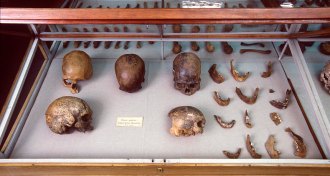 Genetics
GeneticsAncient DNA suggests people settled South America in at least 3 waves
Genetic studies of ancient remains are filling in the picture of who the earliest Americans were and how they spread through the Americas long ago.
-
 Life
LifeThe number of calories you burn while resting depends on the time of day
This daily cycle of calorie burning is one of the many body processes that follow a biological clock.
-
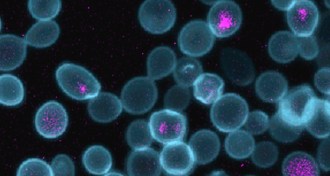 Life
LifeA mash-up of yeast and E. coli shows how mitochondria might have evolved
An engineered partnership between yeast and E. coli suggests one way mitochondria may have evolved.
-
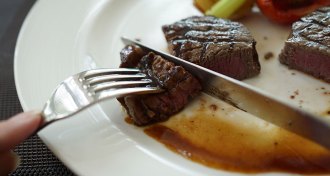 Life
LifeEating less protein may help curb gut bacteria’s growth
A new study in mice and 30 mammal species hints at what controls the types and amounts of gut microbes, which can contribute to health and disease.
-
 Life
LifeTo get a deeper tan, don’t sunbathe every day
Skin cells make protective melanin on a 48-hour cycle.
-
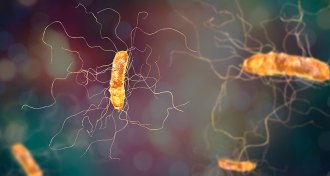 Life
LifeWhy some people may be more susceptible to deadly C. difficile infections
Proline, a type of amino acid, increases when gut microbe mixes are disturbed, giving this pathogen a ready food source.
-
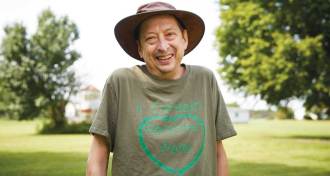 Life
LifeHow to make organ transplants last
New strategies aim to help transplant recipients keep their organs healthy with fewer (or no) immune suppressing drugs.
-
 Genetics
GeneticsDNA differences are linked to having same-sex sexual partners
Genetic differences are associated with choosing same-sex partners in both men and women.
-
 Genetics
GeneticsGenealogy databases could reveal the identity of most Americans
Keeping your DNA private is getting harder.
-
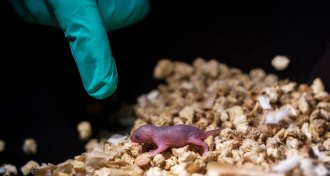 Life
LifeGene editing creates mice with two biological dads for the first time
Scientists have used CRISPR/Cas9 to make mice with two biological fathers.
-
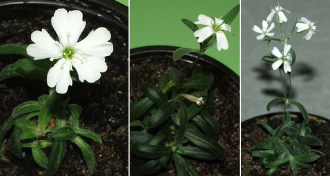 Plants
Plants50 years ago, a 550-year-old seed sprouted
Old seeds can sprout new plants even after centuries of dormancy.